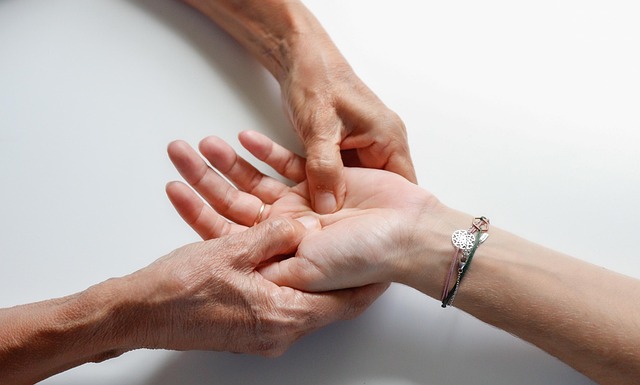Skin tags, caused by friction, genetics, hormones, and obesity, can be prevented through lifestyle changes (diet, exercise), loose clothing, moisturizing, and natural remedies like apple cider vinegar or tea tree oil. For persistent or problematic skin tags, Sheffield Skin Tag Removal services offer safe removal methods tailored to size, number, and location. Consulting a dermatologist is advised for irritation, infection, or discomfort.
Skin tags, those small, soft growths on the skin, might seem harmless but many seek Sheffield Skin Tag Removal due to their unsightly appearance. Understanding their causes and types is the first step in preventing their formation. This guide delves into effective strategies, from lifestyle changes to home remedies, empowering you with knowledge to keep these tags at bay. For persistent or concerning growths, discover when professional Sheffield Skin Tag Removal is recommended.
- Understanding Skin Tags: Causes and Types
- Lifestyle Changes to Prevent Skin Tags
- Effective Home Remedies and Treatments
- When to Seek Professional Help for Sheffield Skin Tag Removal
Understanding Skin Tags: Causes and Types
Skin tags, also known as acrochordons, are small, soft skin growths that typically appear in areas where skin rubs against itself, such as the neck, armpits, and groin. While they are generally harmless, many people find them unsightly and prefer to remove them for cosmetic reasons. Understanding the causes and types of skin tags is the first step towards effective prevention and treatment options, especially when considering professional Sheffield Skin Tag Removal services.
There are several factors that contribute to the development of skin tags, including genetics, hormonal changes, obesity, and certain skin conditions like eczema or diabetes. They can also be more prevalent in individuals with a history of frequent skin irritation or those who spend a lot of time in water, as these environments can lead to friction and subsequent tag formation. Different types of skin tags include acral (appearing on non-sun-exposed areas), pigmented (darker in color due to increased melanin), and pedunculated (connected by a small stalk). Recognizing the specific type can help individuals tailor prevention strategies and choose the most suitable removal method, whether it’s through at-home care or professional treatments offered by Sheffield Skin Tag Removal experts.
Lifestyle Changes to Prevent Skin Tags
In terms of preventing skin tags from forming, lifestyle changes play a crucial role alongside professional treatments like Sheffield Skin Tag Removal. Maintaining a healthy weight is key; excess weight can lead to friction in certain areas, fostering the growth of skin tags. Regular exercise and a balanced diet can help manage weight, reducing the likelihood of developing these small growths.
Additionally, minimizing friction in skin folds and creases is essential. This can be achieved by wearing loose-fitting clothing and avoiding tight garments that might irritate the skin. Moisturizing regularly also helps, as dry skin is more prone to tags. These simple lifestyle adjustments can significantly contribute to preventing skin tags, offering a natural approach to keeping your skin smooth and tag-free in Sheffield and beyond.
Effective Home Remedies and Treatments
When it comes to preventing skin tags, there are several effective home remedies and treatments that can help keep them at bay. One popular natural solution involves using apple cider vinegar. Its acetic acid content helps exfoliate the skin and eliminate dead skin cells, which can prevent the formation of new skin tags. Soak a cotton ball in undiluted apple cider vinegar and gently apply it to the affected areas; leave it on for about 10 minutes before rinsing off with warm water.
Another home remedy worth considering is using tea tree oil, known for its antimicrobial and anti-inflammatory properties. Dilute a few drops of tea tree oil in a carrier oil (like coconut or jojoba) and apply it topically to the skin tags. This may help reduce their size and prevent further growth. Additionally, keeping the affected areas clean and dry can significantly impact skin tag prevention. Regularly washing and exfoliating the skin can help remove dead skin cells and reduce the chances of skin tags developing. For more severe cases or persistent skin tags, considering professional Sheffield Skin Tag Removal methods might be a wise option to ensure effective and safe results.
When to Seek Professional Help for Sheffield Skin Tag Removal
If you’ve tried home remedies and over-the-counter treatments without success, it may be time to consider professional help for Sheffield skin tag removal. While most skin tags are harmless, some can become irritated or infected, especially if they’re in areas that experience friction or rubbing, like the neck or armpits. If your skin tags show signs of redness, swelling, pain, or discharge, or if they cause discomfort or self-esteem issues, it’s best to consult a dermatologist.
Professional removal methods, such as those offered by Sheffield dermatology clinics, can effectively and safely eliminate stubborn skin tags. A dermatologist will be able to assess the size, number, and location of your skin tags and recommend the most suitable treatment option, which could include freezing, cutting, or burning off the tags, depending on their nature and your preferences. This is particularly important for larger or numerous skin tags, as DIY methods can be ineffective and may cause further complications.
Skin tags can be an unsightly concern, but with the right approach, prevention is key. By understanding the causes and types of skin tags, adopting a healthy lifestyle, trying natural remedies, and knowing when to seek professional help for effective Sheffield Skin Tag Removal, you can minimize their appearance and enjoy smoother, tag-free skin. Regular care and attention will go a long way in maintaining confident and comfortable skin.
